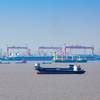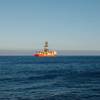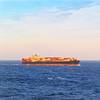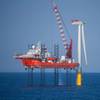EMSA has launched RuleCheck, which is a system to enable ship
inspections in ports to be undertaken more efficiently and effectively.
Over time, the international rules governing port state control (PSC)
related ship inspections have become more and more complex.
RuleCheck makes the inspector’s job easier, by clearly showing the
different rules that apply to a selected ship at the time of an inspection.
RuleCheck was developed under a contract with the Korean Register of
Shipping (KRS).
“Port state control is right at the heart of ensuring that ships operate safely, and
RuleCheck will make a big difference to ship inspections in EU ports,” said EMSA
Executive Director Willem de Ruiter. “For years, port state control officers have
had an increasingly difficult time trying to ensure that the many different rules
are applied properly in carrying out their work. The new system will simplify their
decision making process, thus enabling ship inspections to be carried out in a
more efficient and effective way in the future. It should also be remembered that
this is only the first version of RuleCheck, so there will be further improvements
to come.”
Conventions have been getting more and more complex over time. For example:
they are increasing in number; they often contain amendments; they have
varying dates of implementation and; they often do not apply to all ship types.
In addition, further regulatory changes will only make the situation more
complicated in the future. Against this background, the job of the port state
control officer would have become more and more difficult if nothing was done to
improve the situation.
Consequently, some time ago, all member states within the Paris Memorandum of
Understanding (Paris MoU - which deals with port state control inspections in the
EU and surrounding countries) agreed on the need for a simplified system. This
would not only inform port state control officers (PSCOs) of the regulations which
apply to a specific ship, given the ship type and the date of build, but would also
provide a link to the instruction issued by the Paris MOU. Such a system would
assist in the harmonisation and standardisation of the inspection process across
the whole port state control regime.
EMSA is the organisation which, on behalf of the European Commission, is tasked
with ensuring that EU Member States comply with EU and international legislation
relating to port state control. Within this framework, and as part of its
involvement with the Paris MoU, EMSA called for tenders to design, develop and
deliver the RuleCheck system. KRS won the competition and, during the
development process, input from Paris MOU members was very valuable in
ensuring that the system serves the needs of the end users in the best way
possible.
When using the system, PSCOs only have to input the ship type and the date of
build (as a minimum) and they can immediately obtain the full set of regulations
which apply to that particular ship without having to refer to any other source.
The system contains information on the regulations relating to the International
Maritime Organisation (IMO), the International Labour Organisation (ILO) and the
Paris MOU, and also allows the PSCO to refine the regulations when other
information such as length, tonnage or number of passengers is known. There are
also other features of the system which will enable the PSCO to examine selected
areas in much greater detail.
In addition to supplying this first version, the contract with KRS also covers
system updates relating to new requirements, and it allows for
amendments/improvements to be made as a result of observations by PSCOs
when using the system. The maintenance contract will run for 4 years and will
encompass the new water ballast management, anti-fouling systems and ILO
conventions when they come into force.
Brian Hogan (chairman) and Richard Schiferli (general secretary) of the Paris
MOU attended the launch, along with representatives of Germany and Portugal
who, along with Ireland, the Netherlands and the UK, were members of the Paris
User Group.
Sponsored Content
Chris-Marine’s solutions help to prolong engine lifetime

Subscribe for
Maritime Reporter E-News
Maritime Reporter E-News is the maritime industry's largest circulation and most authoritative ENews Service, delivered to your Email five times per week










